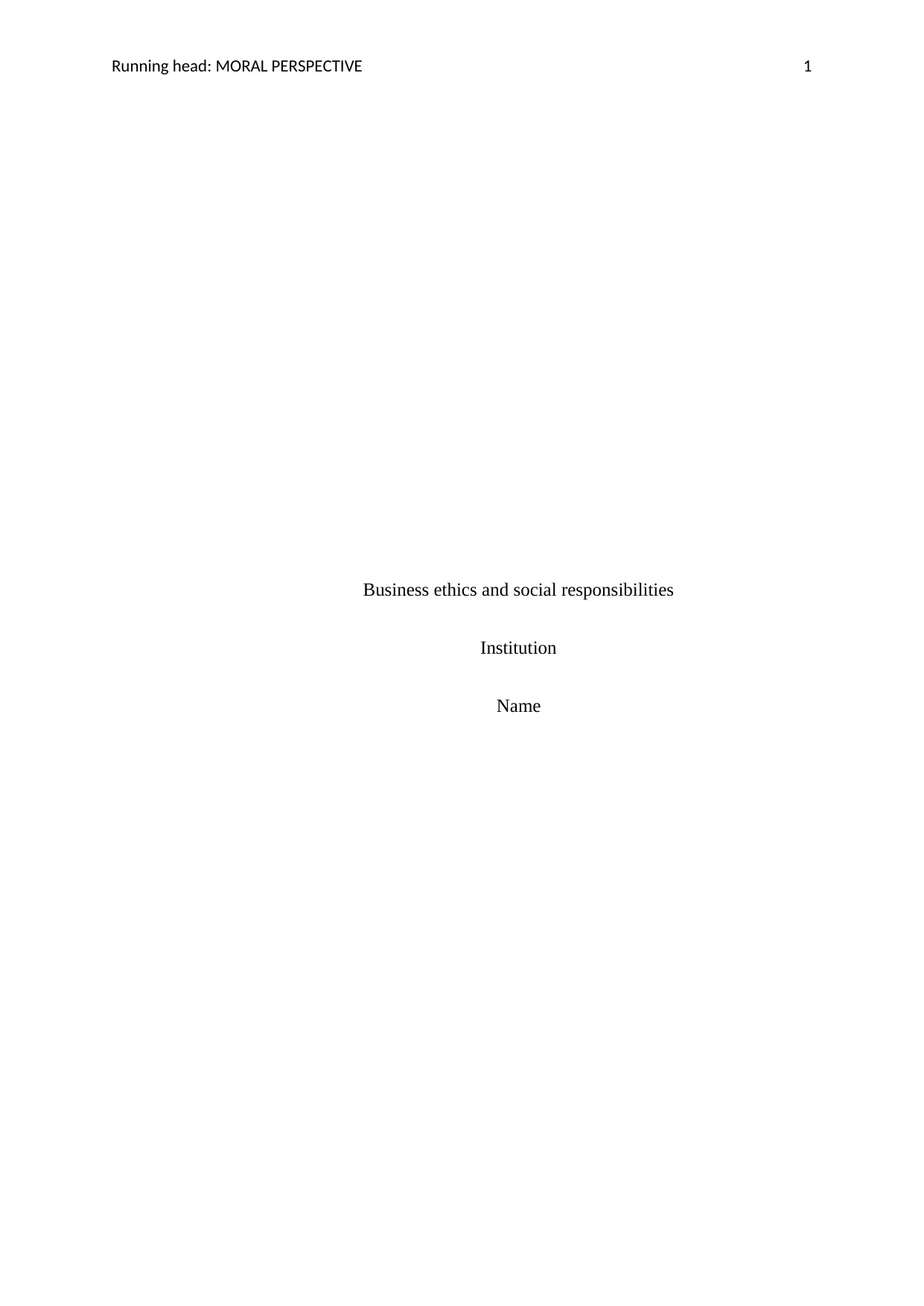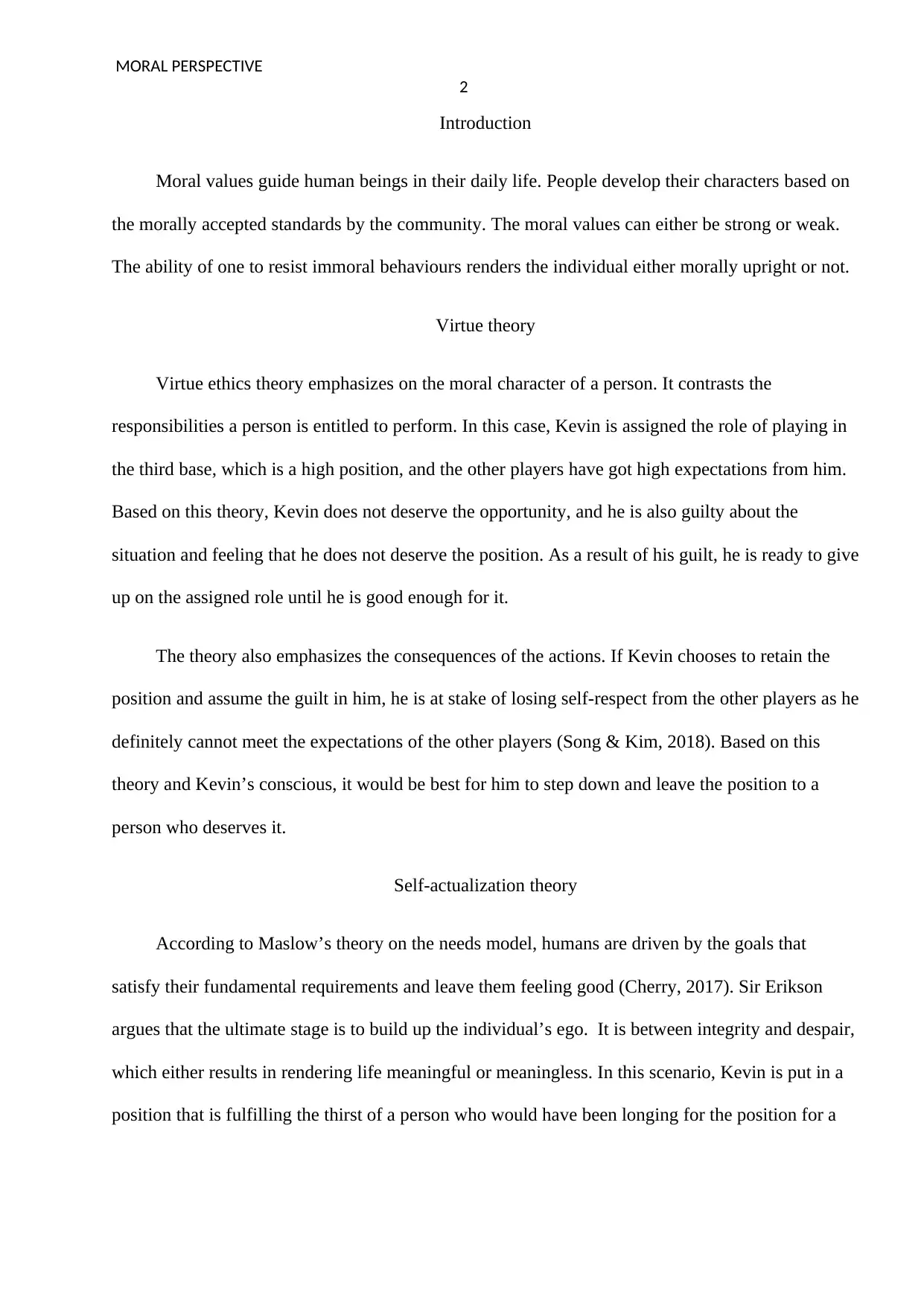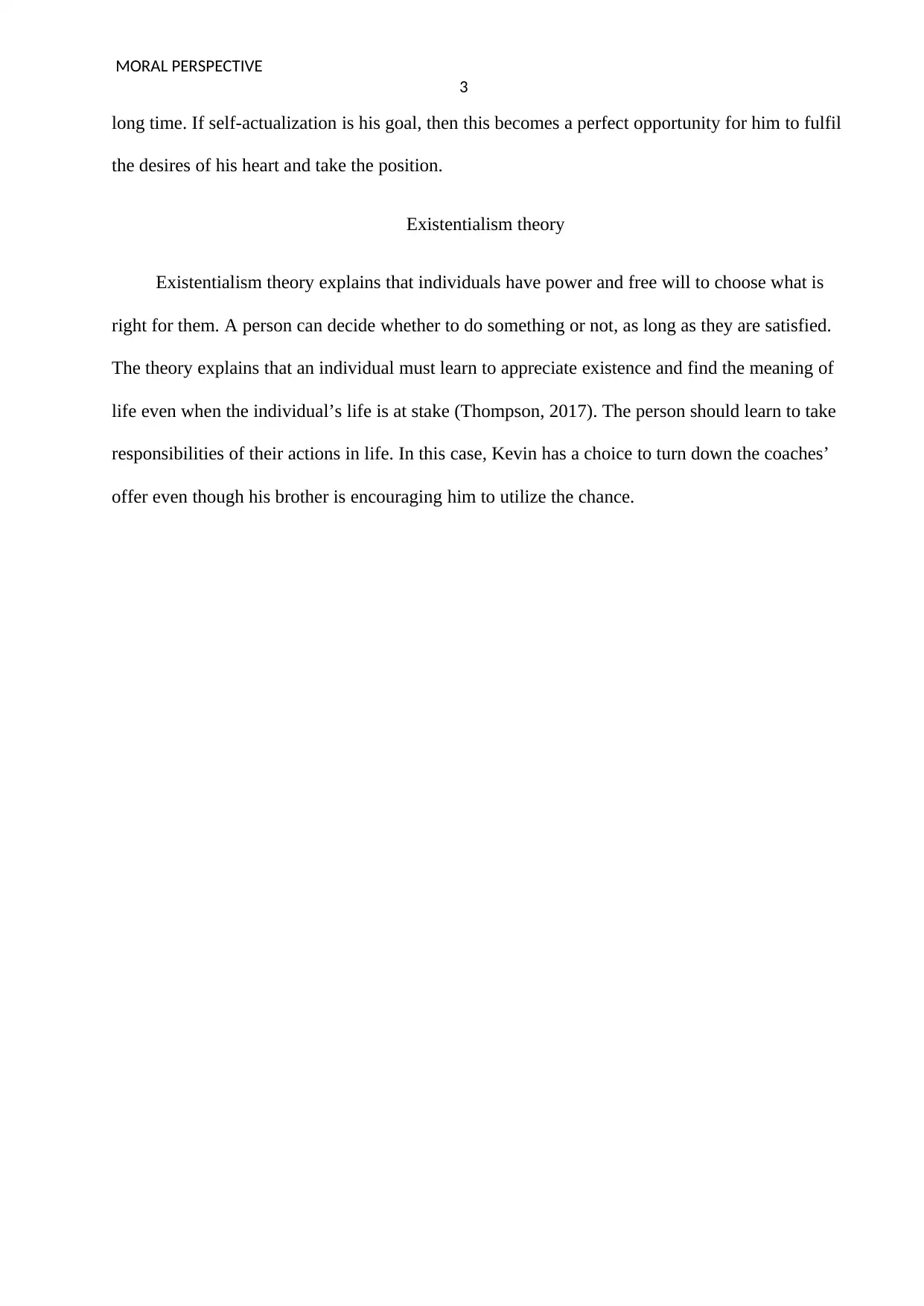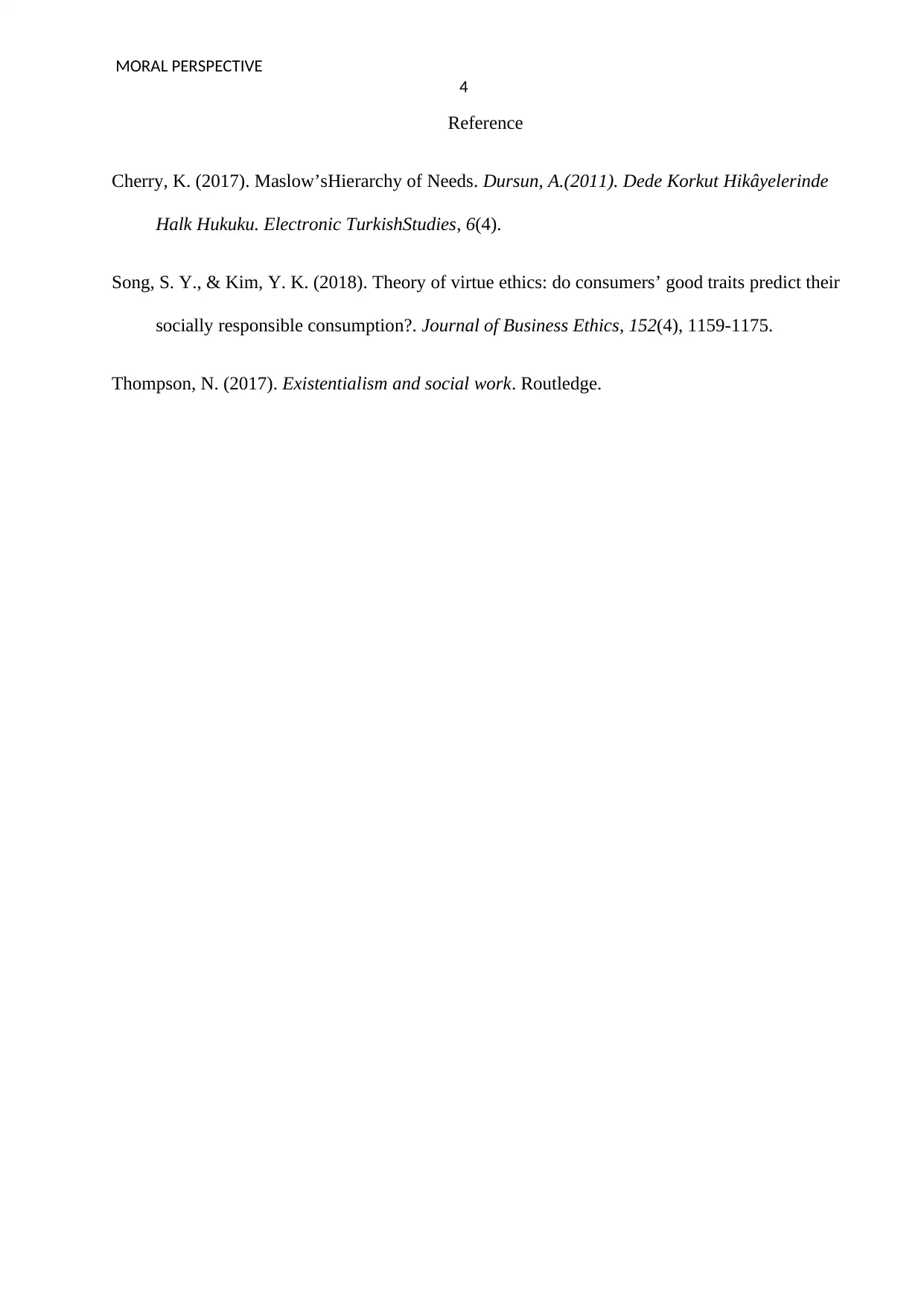Business Ethics and Moral Perspectives: Kevin's Dilemma Analysis
VerifiedAdded on 2022/11/16
|4
|595
|291
Homework Assignment
AI Summary
This assignment analyzes Kevin's moral dilemma as a high school baseball player who missed tryouts due to basketball playoffs. The task involves evaluating Kevin's situation using three moral perspectives: virtue ethics, self-actualization theory, and existentialism. Virtue ethics focuses on Kevin's moral character and guilt about the situation. Self-actualization theory considers Kevin's desire to fulfill his goals, and existentialism emphasizes his free will and responsibility. The assignment requires empathizing with Kevin, analyzing the situation through each perspective, and recommending a course of action. The student explores the implications of each theory, examining how they influence Kevin's decision-making process regarding whether to accept the baseball coach's offer to join the team despite his lack of prior league experience.
1 out of 4









![[object Object]](/_next/static/media/star-bottom.7253800d.svg)